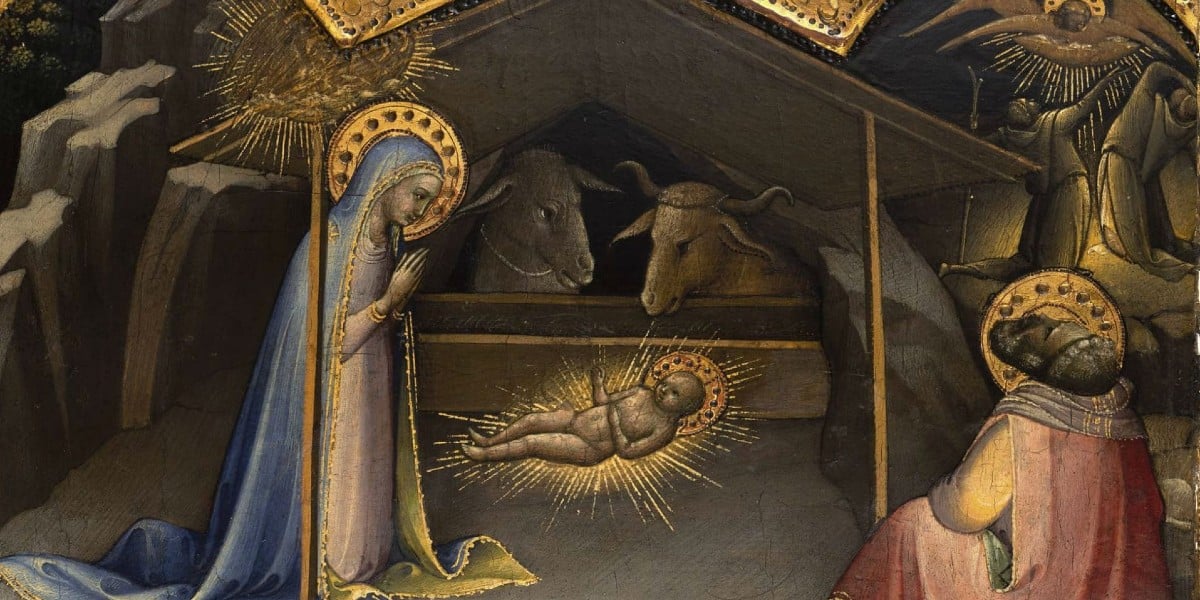Pope Leo XIV – Inaugural Mass Homily
Elected on May 8, 2025, as the 267th successor of St. Peter, Pope Leo XIV’...

St. Bernard of Clairvaux says there are three comings: Advent prepares not just for the first coming of Christ to Israel, or even the second at the end of time. There is a third coming between these two in which Jesus comes in spirit and power for our rest and consolation.
We know that there are three comings of the Lord. The third lies between the other two. It is invisible, while the other two are visible.
In the first coming he was seen on earth, dwelling among men; he himself testifies that they saw him and hated him. In the final coming all flesh will see the salvation of our God, and they will look on him whom they pierced. The intermediate coming is a hidden one; in it only the elect see the Lord within their own selves, and they are saved. In his first coming our Lord came in our flesh and in our weakness; in this middle coming he comes in spirit and in power; in the final coming he will be seen in glory and majesty.
In case someone should think that what we say about this middle coming is sheer invention, listen to what our Lord himself says: If anyone loves me, he will keep my word, and my Father will love him, and we will come to him [Jn. 14:23].
There is another passage of Scripture which reads: He who fears God will do good, but something further has been said about the one who loves, that is, that he will keep God’s word. Where is God’s word to be kept? Obviously in the heart, as the prophet says: I have hidden your words in my heart, so that I may not sin against you.
Keep God’s word in this way. Let it enter into your very being, let it take possession of your desires and your whole way of life. Feed on goodness, and your soul will delight in its richness. Remember to eat your bread, or your heart will wither away. Fill your soul with richness and strength.
Because this coming lies between the other two, it is like a road on which we travel from the first coming to the last. In the first, Christ was our redemption; in the last, he will appear as our life; in this middle coming, he is our rest and consolation.
If you keep the word of God in this way, it will also keep you. The Son with the Father will come to you. The great Prophet who will build the new Jerusalem will come, the one who makes all things new. This coming will fulfill what is written: As we have borne the likeness of the earthly man, we shall also bear the likeness of the heavenly man. Just as Adam’s sin spread through all mankind and took hold of all, so Christ, who created and redeemed all, will glorify all, once he takes possession of all.
FOR A FREE ADVENT & 12 DAYS OF CHRISTMAS “CHEAT SHEET” with many practical suggestions on how you and your family or study group can make this the best Advent and Christmas Season ever, either sign up for free on our email list HERE or if you are already a subscriber, look for it in our weekly Advent emails. This document is not posted publicly on our website and is for our subscribers only.
For more great resources for the Advent Season, visit the Crossroads Initiative ADVENT RESOURCE LIBRARY
This famous excerpt on the three (3) comings of the Lord Jesus Christ is taken from a sermon by St. Bernard of Clairvaux (Sermo 5, In Adventu Domini, 1-3: Opera Omnia, Edit. Cisterc. 4 {1966}, 188-190. It appears in the Roman Office of Readings for Wednesday of the First Week of Advent. The accompanying biblical reading is from Isaiah 5:1-7.
Banner/featured image The Nativity (the first coming of the Lord) by Lorenzo Monaco (Piero di Giovanni). Public domain.
No Comments